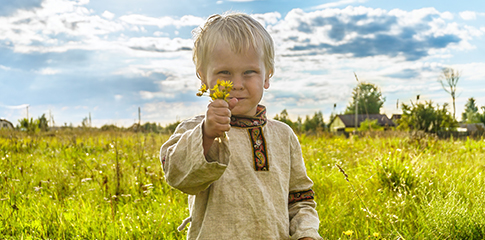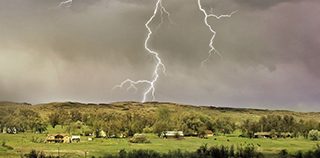Itchy eyes, sneezing, coughing. Hay fever isn’t fun. And if you’re fed up with suffering from it every spring and summer, you’re far from alone. Nearly half (49%) of the UK population suffers from hay fever1.
Although the number of allergy sufferers keeps, rising2, there’s still no cure for hay fever, also known as seasonal rhinitis. But you can reduce the symptoms.
The standard treatment is antihistamines, over the counter or on prescription, but you can also try natural remedies for hay fever allergies.
Here we’ll look at the best natural remedies for hay fever, including:
- Honey and bee pollen benefits
- Vitamins for hay fever
- Herbal remedies for hay fever
- Alternative therapies
- FAQs
Finding a natural hay fever remedy
Natural and home remedies can help soothe the symptoms of hay fever, which include:
- sneezing
- itchy eyes
- snotty nose
- blocked nose
- scratchy throat
- coughing
- headache
- earache
Using natural home remedies for hay fever can be a useful accompaniment to antihistamines because they are cheaper and have other health benefits . However, before trying any new natural remedies treatment, it is essential that you consult your health care provider.
Honey and bee pollen benefits
Bee pollen is a natural mix of nectar, flower pollen, bee secretions, wax, and enzymes. It’s widely used for many conditions, including seasonal allergies like hay fever. It’s thought that ingesting bee pollen for hay fever can help build up your resistance to allergens and reduce symptoms.
Some believe that eating local honey for hay fever means ingesting local pollen, which would have a similar effect to allergy shots. Bee pollen is normally well tolerated, but the presence of allergenic pollens and substances can not be excluded.
Manuka honey for hay fever is considered especially effective, thanks to its anti-inflammatory properties3.
Vitamins for hay fever
There’s evidence that vitamin C is beneficial for allergies4. This vitamin, also known as ascorbic acid, is a natural antihistamine and antioxidant. It’s suggested it can reduce the amount of histamine produced by the body.
Several small studies in the US showed that when groups of around a hundred people or less were given vitamin C intravenously or with a nasal spray, their histamine levels were reduced. Symptoms associated with hay fever, such as runny nose and sneezing, were lowered5.
Although more studies need to be undertaken, the signs are promising that vitamin C could be a helpful hay fever remedy.
Herbal remedies for hay fever
Chamomile and nettle tea
Both chamomile and nettle tea are recommended as anti-inflammatory agents, which could help fight against hay fever symptoms. Chamomile tea is an antioxidant that contains flavonoids, which can act as anti-inflammatories.
You can drink chamomile tea or even make compresses to relieve red, swollen eyes. But make sure you use a fresh compress on each eye to avoid infection6.
Nettle tea is also used by many to alleviate seasonal rhinitis. Nettles contain vitamin C, and preliminary studies suggest they can reduce sneezing and itching.
If you make nettle tea for hay fever, make sure the leaves are washed and steeped in boiled water for a few minutes first.
Ginger
When it comes to hay fever, many of the symptoms are due to inflammatory issues, including irritation and swelling in the nose, eyes and throat. Ginger has been used to alleviate health problems for thousands of years, and is proven to contain antioxidative, anti-inflammatory phytochemical compounds7.
Whether fresh or dried, making ginger tea or adding it to foods like curry or a stir fry, may help you feel better.
Garlic
Increasing your garlic intake a month or two before hay fever season could keep your symptoms at bay. Garlic is an anti-inflammatory and a source of quercetin, a natural antihistamine. It’s also a decongestant and can boost your immune system8.
Garlic is most effective if you eat it raw or crushed9. But if you’re not a fan of the taste, or you have a household who may object, you could pick up garlic capsules from a chemist instead.
Alternative therapies
Showering
While many people shower first thing in the morning to refresh themselves for the day ahead, hay fever sufferers should consider an evening shower too. This is because pollen can cling to hair and clothes and end up on your skin, especially when the pollen count is high. Showering before you go to bed can prevent pollen from getting in your bed and help make your home a hay fever free zone.
Acupuncture
Studies reveal that acupuncture could improve hay fever symptoms, so if you’re struggling to relieve your allergies, you may wish to give an acupuncture session a try. Acupuncture for hay fever works to reduce the histamine immune response and teach your body not to overreact to pollen10.
Key hay fever acupuncture points are located on the face, at the end of each eyebrow and on either side of the nostrils11.
Steam
Inhaling steam is a tried and tested home remedy to relieve hay fever. There are two ways to inhale steam safely. You can fill a bowl with hot water and take in multiple deep breaths – in through your nose and out through your mouth. Or, you can run a hot, steamy shower or bath and inhale the steam12.
Herbal sleeping tablets
Sleeping with hay fever can be a challenge. And unfortunately, allergy symptoms tend to be worse at night. In order to get a good night’s sleep and feel refreshed the next day, it could be worth trying natural sleep remedies or herbal sleeping tablets or drops.
Natural nasal sprays
Natural nasal sprays can come in handy for hay fever allergies, especially if your symptoms are predominantly nasal-based – like a blocked or runny nose. A nasal spray may help to clear your nasal passages from allergens and hydrate your nose.
Remedies for hay fever
All the above could be used as potential home or natural remedies for hay fever allergies. However, if your symptoms feel out of control, consult your doctor.
Understanding what type of pollen affects you can help you prepare for the day ahead and fight hay fever more effectively. Check Your Pollen Pal each day to see how high the pollen count is.
Act naturally
You don’t have to feel miserable every spring and summer with hay fever. And you don’t have to only rely on antihistamines that might make you feel drowsy. Combining some of these suggestions with a natural remedy for hay fever could help you feel better.
FAQs
Are home remedies for hay fever effective?
Only small studies have been made on humans for many of these remedies, but the results are promising. Some of the suggested remedies are said to help with several ailments 13.
What’s the best remedy for hay fever?
It’s difficult to say which is best, as everybody responds to treatment differently, and some suffer hay fever more than others. The most widely used remedy for hay fever is antihistamines, but some medicines can make you drowsy.
How do you treat hay fever?
We recommend you consult with your GP for appropriate treatment for your hay fever. But these are the most common medical treatments:
- Antihistamines
- Corticosteroid nasal sprays, tablets or drops
- Nasal decongestants
- Eye drops
- Immunotherapy
This article has been expertly reviewed by Jin Zhang, Director of Global Medical Affairs at Kimberly-Clark.
1
https://www.kleenex.co.uk/advice/allergies/hay-fever-facts-and-faqs#:~:text=Is%20hay%20fever%20common%20in,of%20the%20most%20common%20allergies
2
https://www.allergycliniclondon.co.uk/why-are-allergies-on-the-rise-in-the-uk/
3
https://www.webmd.com/a-to-z-guides/manuka-honey-medicinal-uses
4
https://www.ncbi.nlm.nih.gov/pmc/articles/PMC6136002/
5
https://www.healthline.com/nutrition/vitamin-c-for-allergies#which-allergies-could-it-benefit
6
https://www.goodto.com/wellbeing/top-natural-hay-fever-remedies-43399
7
https://www.healthline.com/health/seasonal-allergies-best-foods#1.-Ginger
8
https://www.goodto.com/wellbeing/top-natural-hay-fever-remedies-43399
9
https://www.purewow.com/food/how-to-eat-raw-garlic
10
Treat Hayfever Naturally (avogel.co.uk), Acupuncture treatment for Hayfever, allergies and blocked sinuses (hatfieldpractice.co.uk)
11
Using Acupressure Points for Hay Fever • Sunny Jaspal Acupuncture
12
Using Acupressure Points for Hay Fever • Sunny Jaspal Acupuncture
13
https://pubmed.ncbi.nlm.nih.gov/26228533/
14
https://www.nhs.uk/conditions/antihistamines/
The content should not substitute medical advice from your personal healthcare provider. Please consult your healthcare provider for recommendations/diagnosis or treatment













